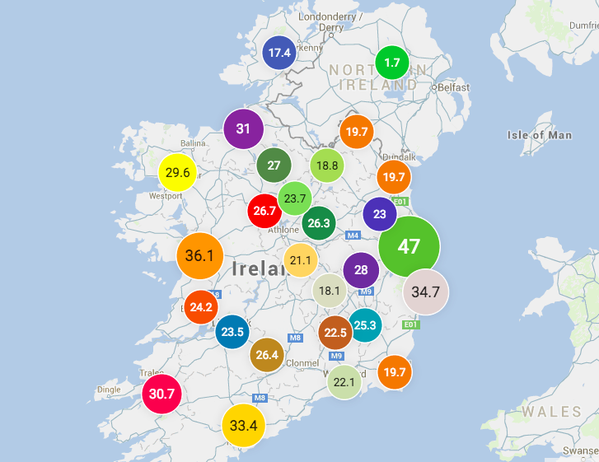
Larry Goodman
A local businessman has brought legal proceedings claiming he is entitled to a 7.5 per cent share of the former Bank of Ireland site at Baggot Street in Dublin.
Andrew Griffith has sued for specific performance of an alleged agreement with companies in Larry Goodman’s Parma Developments group, which reject his claims as “opportunistic” and without “substance or merit”. His claim was brought after media reports about proposals for refurbishment of the Baggot Street property and the rise in property values in Dublin city centre, it is alleged.
Rossa Fanning, for the Parma side, said Mr Griffith began from 2013 to make claims sporadically relating to agreements of 2006 and 2008. Mr Griffith was looking for a 7.5 per cent interest in the Bank of Ireland site on which his side has spent €100 million, counsel said.
There was “no basis” for Mr Griffith’s claim and the Parma side wanted the case fast-tracked in the Commercial Court list, counsel said. The case concerned construction of an option agreement and, while an employment law issue was raised by Mr Griffith, this was ancillary to the main issue, he also argued.
Stephen Moran, for Mr Griffith, opposed transfer on grounds the matter included an employment law aspect which was not an appropriate matter to be addressed in commercial proceedings.

The disputed site on Baggot Street, former HQ of Bank of Ireland
Refusing transfer, Mr Justice Brian McGovern said the Commercial Court was intended for urgent matters and this case related to agreements dating back to 2006 and 2008. The refusal means the case will now proceed in the ordinary High Court list.
Mr Griffith, with an address at Ravensdale, Dundalk, Co Louth, has brought the proceedings against four companies: Parma Investments BV, based in the Netherlands; Parma Developments, Milestown, Castlebellingham, Co Louth; Parma Developments (Jersey) Ltd and Remley.
He claims he had agreements in 2006 and 2008 involving Parma companies and wants orders for specific performance of those. He claims the agreements incorporate the acquisition, through Remley, of the former Bank of Ireland headquarters. Alternatively, he is seeking damages in addition to, or in lieu of, specific performance.
Mr Griffith alleges he entered into an option agreement in December 2006 with Parma Investments BV and Parma Developments. He also claims he entered into an employment agreement at that time with Parma Management Services Ltd (now Parma Management Services) to advise and assist various Parma companies on various matters, including in developing its property portfolio and identifying lands with potential for development with a view to selling them on at a profit.
The agreement provided he was to subscribe for 7.5 per cent of each new property development site acquired by the group, including the Bank of Ireland site, he claims.
The defendants deny his claims. They also plead some companies which are not part of the Parma Developments Group hold a portfolio of investment properties which is “entirely separate” to the development portfolio, for the purpose of long term rental and/or capital appreciation. The defendants’ case is the former Bank of Ireland property falls within this investment portfolio and not within the development portfolio and, as a result, Mr Griffith’s claim is misconceived.
Source: The Irish Times
 Less than a third of drink driving cases before the courts in Co Louth since January 2013 have resulted in convictions.
Less than a third of drink driving cases before the courts in Co Louth since January 2013 have resulted in convictions.








